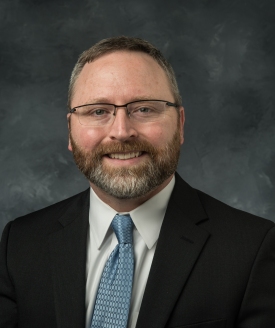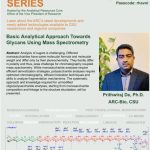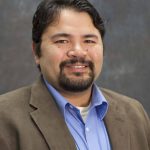About the Seminar
Tandem catalysts that catalyze two different organic transformations in a single pot are highly desirable because they enable atom-efficient, multi-component assembly of complex molecules from simple building blocks. Tandem one-pot reactions collapse the synthesis timeline, limit material loss, and can reduce operational costs because they do not require workup and purification after each reaction step. Many examples of tandem catalysis rely on metal-catalyzed reactions involving one or more metal complexes. In contrast, and despite remarkable advances in the development of reactive ligand platforms, there are few examples of metal complexes that contain reactive ligands capable of performing independent catalytic reactions in tandem with separate reactions at the metal.
In this talk, I will describe the first examples of tandem metal-ligand catalysis using a class of reactive ligands called TBDPhos. These diphosphorus ligands contain a triaminoborane subunit derived from 1,8,10,9-triazaboradecalin (TBD) that can undergo cooperative ligand-centered reactions. I will discuss chemical factors that control ligand-centered reactivity in TBDPhos complexes and show how this reactivity proceeds via formation of highly Lewis-acidic borenium ions (three-coordinate boron cations) while TBDPhos is bound to different transition metals. I will then describe how Pd TBDPhos complexes were used successfully to access borenium-catalyzed cycloaddition reactions at the ligand in tandem with Pd-catalyzed cross-coupling reactions at the metal. The potential advantages and limitations of this approach will be discussed with respect to more traditional examples of tandem catalysis.
About the Speaker
Scott attended college after completing three years of active-duty service in the U.S. Army. He earned his B.S. degree in chemistry from North Central College, a small liberal arts college in Naperville, IL. In 2006, he entered the PhD chemistry program at the University of Illinois at Urbana-Champaign and performed research under the guidance of Gregory Girolami. Scott’s research focused on the synthesis and characterization of chelating borohydride ligands and their use in the preparation of volatile transition metal, lanthanide, and actinide complexes for chemical vapor deposition applications. After receiving his PhD in spring 2010, he began working as a Seaborg Postdoctoral Fellow with Stosh Kozimor and David Clark at Los Alamos National Lab in Los Alamos, NM. His research there focused on ligand K-edge X-ray absorption spectroscopy (XAS) studies to understand structure-function relationships in effective minor actinide extractants. In 2012, Scott accepted a faculty position at George Washington University in Washington, DC. In 2014, he moved his research group to the University of Iowa where he is currently an Associate Professor of Chemistry. His research interests focus primarily on coordination chemistry and reactive ligand design to address chemical challenges related to nuclear energy, CO2 mitigation, and catalysis.



